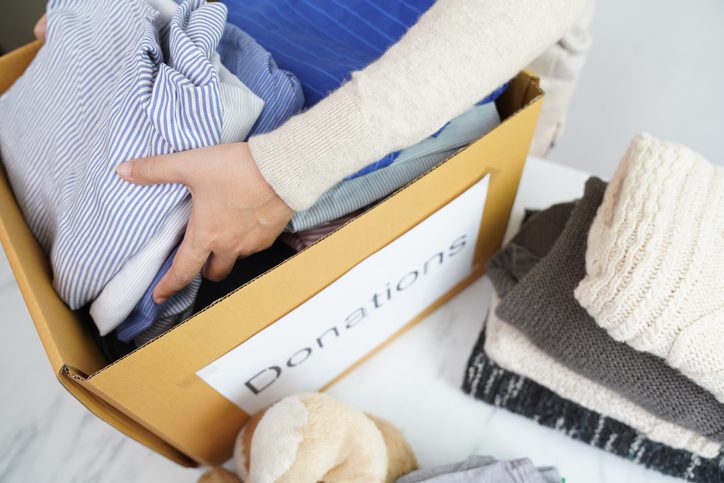
Photo by John Parra/Getty Images for MoveOn
Gov. Ron DeSantis’ six-week abortion ban “leads to preventable suffering” and unnecessarily puts women’s lives in danger, say health care professionals across the Sunshine State.
Florida’s abortion ban “endangers both patients and clinicians,” says a report from the nonprofit Physicians for Human Rights that surveyed 25 OB-GYNs, abortion providers, genetic counselors, and other health care professionals in the Sunshine State.
Signed into law by Republican Gov. Ron DeSantis, the ban prohibits abortions after six weeks of pregnancy, which is before most women know they are pregnant. The law comes with exceptions for fatal fetal abnormalities and to protect the life of the mother, as well as for victims of rape, incest, and human trafficking. But the health care providers surveyed said those exceptions are vague and unclear, which leads to wasting precious time in discussions with hospital lawyers and administrators while the patients’ conditions worsen, or their lives are in danger.
So, despite these exceptions, the report concludes, “the ban violates individual reproductive freedom, leads to preventable suffering, and compels clinicians to deviate from established standards of care and medical ethics.”
A threat to patients and doctors
Even as the Biden administration warned hospitals to treat pregnant patients in emergencies, facilities are reluctant to do so as doctors face the threat of being charged with a third-degree felony punishable with up to five years in prison, a $5,000 fine, and loss of their medical license if they violate the state-level abortion ban.
“There is no other field of medicine where people are like, ‘Oh, sorry, I cannot do your colonoscopy or whatever, because I just cannot,’” said an OB-GYN interviewed for the report.
The ban, the doctor added, is forcing doctors to turn people away “for no real reason except to avoid going to jail, which is crazy.”
The result is that pregnant women across the state – many experiencing a life-threatening health crisis – are being denied the emergency medical care they need.
“There are stories all across the country and in Florida, in particular, where women have been turned away at the emergency room and have had had irreparable damage to their bodies and their health,” Veronica Ingham, the Senior Campaign Director of Free & Just – a national nonprofit organization focused on protecting and expanding reproductive rights, told Floricua.
RELATED: Florida’s biggest anti-abortion politicians are seeking reelection in November
In on instance, a 15-week pregnant Florida woman who was leaking amniotic fluid for an hour in Broward Health Coral Springs’ emergency waiting room was effectively turned away, according to federal documents gathered by the Associated Press.
An ultrasound revealed the patient had no amniotic fluid surrounding the fetus, a dangerous situation that can cause serious infection. After the emergency room doctor listed her condition as “improved” and discharged her without consulting the hospital’s OB-GYN, the woman miscarried in a public bathroom that day. Apart from the fear and suffering this caused her, she had to spend six days on a ventilator.
“The Legislature uses wording that is very confusing,” Dr. Cecilia Grande, a Florida OB-GYN and a member of the Committee to Protect Health Care Reproductive Freedom Taskforce, told Floricua. “They say, well, if the patient’s life is at risk, you can go ahead and induce the delivery. “But what is ‘at risk’? Do we wait for them to be very sick, or just slightly sick? We’re told to do malpractice; we’re told to send the patient home and wait for the patient to be sick.”
Dr. Mona V. Mangat, an internal medicine/pediatric specialist and Board Chair of the Committee to Protect Health Care in Saint Petersburg, Florida, agrees.
“Every pregnancy is unique and requires different medical considerations and care. But under Florida’s ban, doctors risk prison time just in trying to treat our patients,” she told Floricua.
“As a physician, I know that when it comes to issues as personal and complicated as pregnancy, politicians are never more qualified to make health care decisions than patients and their doctors.”
The DeSantis administration on Thursday reiterated that state law allows abortions at any point in pregnancy to save the life of the mother “or avert a serious risk of substantial and irreversible physical impairment of a major bodily function,” according to the Orlando Sentinel.
Failing to provide that “life-saving treatment” could constitute medical malpractice, the Florida Agency for Health Care Administration and the Florida Department of Health warned providers by email and social media. State officials said they issued the notice in response to “misinformation” about Florida’s abortion laws.
But the state’s proclamations are just “not good enough,” say pro-choice advocates who have seen the real devastation caused by the vague wording of the six-week abortion law.
“The state can continue to spend their resources saying there’s misinformation out there, but we’re seeing the real-life outcomes, and it’s just not good enough,” a spokesperson for Planned Parenthood in Florida told the USA TODAY Network. “That’s why Amendment 4 is so important to get government out of these health care decisions.”
Every woman is affected
Marginalized women are the disproportionally affected by the six-week ban, Alejandra Rondon, Latinx constituency manager at Florida Rising, Florida’s largest independent political progressive organization, told Floricua.
Rondon is also co-lead on floridalibertad.com, the Spanish language arm of the Floridians Protecting Freedom campaign which is behind Amendment 4, the abortion rights ballot measure that will appear on voters’ November ballots. Florida is home to 1.4 million Latinas of reproductive age, and of this population 558,000 are economically insecure.
RELATED: Fact-checking Trump’s lies on abortion during the presidential debate
“We’ve seen that these abortion bans disproportionately impact women of color and communities of color,” agrees Ingham. “But what I would say is that abortion bans impact everybody no matter your socio-economic status or the color of your skin.”
Ariel Cavanaugh-Okah is the perfect example that health complications happen to anyone, regardless of status. The Florida woman, a mother of two who very much wanted her pregnancy, was told by doctors that her ultrasound showed severe fetal abnormalities.
Although she did have the means to travel out of state to receive the care that she needed, she realized that “I could have all the money in the world, but if I can’t get to somewhere where they’re going to treat me, I can still die.”
“Looking at the map of how far I would have to go to get the health care I needed if something did happen, made me realize that no amount of money can give me that time,” she told Floricua.
Fighting for reproductive rights
Both Grande and Mangat, as well as Ingham, are strong proponents of Amendment 4.
If it passes with 60% of the vote, the “Amendment to Limit Government Interference with Abortion” will make abortion legal again in the state before viability – which is generally understood to mean the point at which the fetus is viable outside the uterus, which is usually around 24 weeks – or when necessary to protect a patient’s health, as determined by their healthcare provider.
“We are hoping that abortion is protected in November and that voters vote to enshrine the constitutional right to abortion in Florida,” says Ingham. “That is what it was under Roe v. Wade and that is what we’re fighting for.”
“We can’t lose our civil liberties,” added Dr. Grande. “My daughter now has fewer rights than my mother had in her day. That is unheard of.”
Support Our Cause
Thank you for taking the time to read our work. Before you go, we hope you'll consider supporting our values-driven journalism, which has always strived to make clear what's really at stake for Floridians and our future.
Since day one, our goal here at Floricua has always been to empower people across the state with fact-based news and information. We believe that when people are armed with knowledge about what's happening in their local, state, and federal governments—including who is working on their behalf and who is actively trying to block efforts aimed at improving the daily lives of Florida families—they will be inspired to become civically engaged.


People are leaving states with abortion bans, according to study
A new analysis from the National Bureau of Economic Research found that since 2022, states with near-total abortion bans appear to have lost 36,000...

The fight for reproductive justice in Florida is ‘not over,’ say advocates
"We're going to ensure that our voices are heard," says Charo Valero of the National Latina Institute for Reproductive Justice, who spoke with...

5 places in Florida to donate clothes, shoes, and more
Decluttering your home can provide such a satisfying feeling of accomplishment. After sorting through all of your belongings and determining what...

8 Orlando hotels that pack as much fun as the theme parks
With waterslides, family arcades, playgrounds for the kids, and spas for mom and dad, these Orlando hotels will make your vacation unforgettable!...




